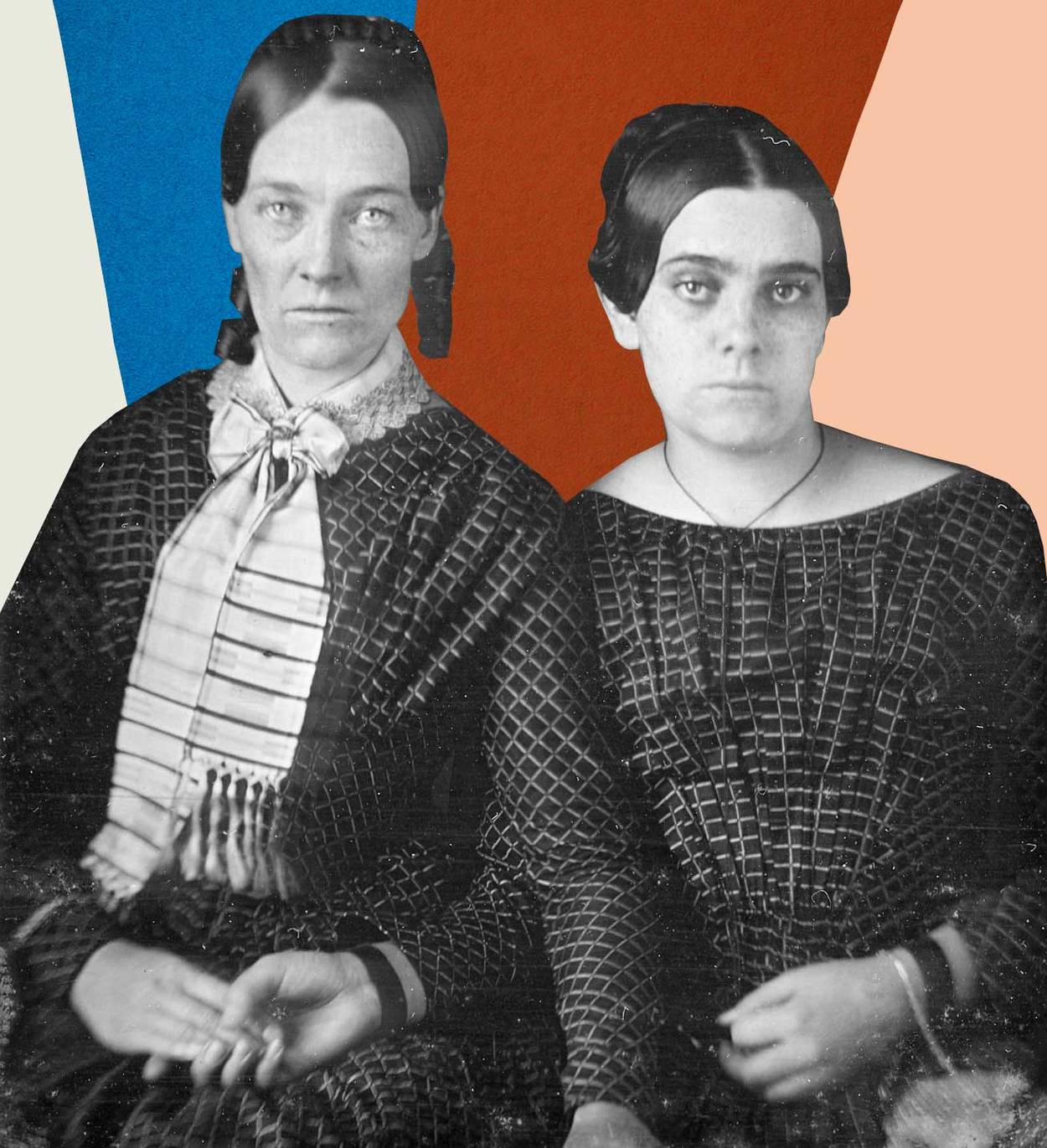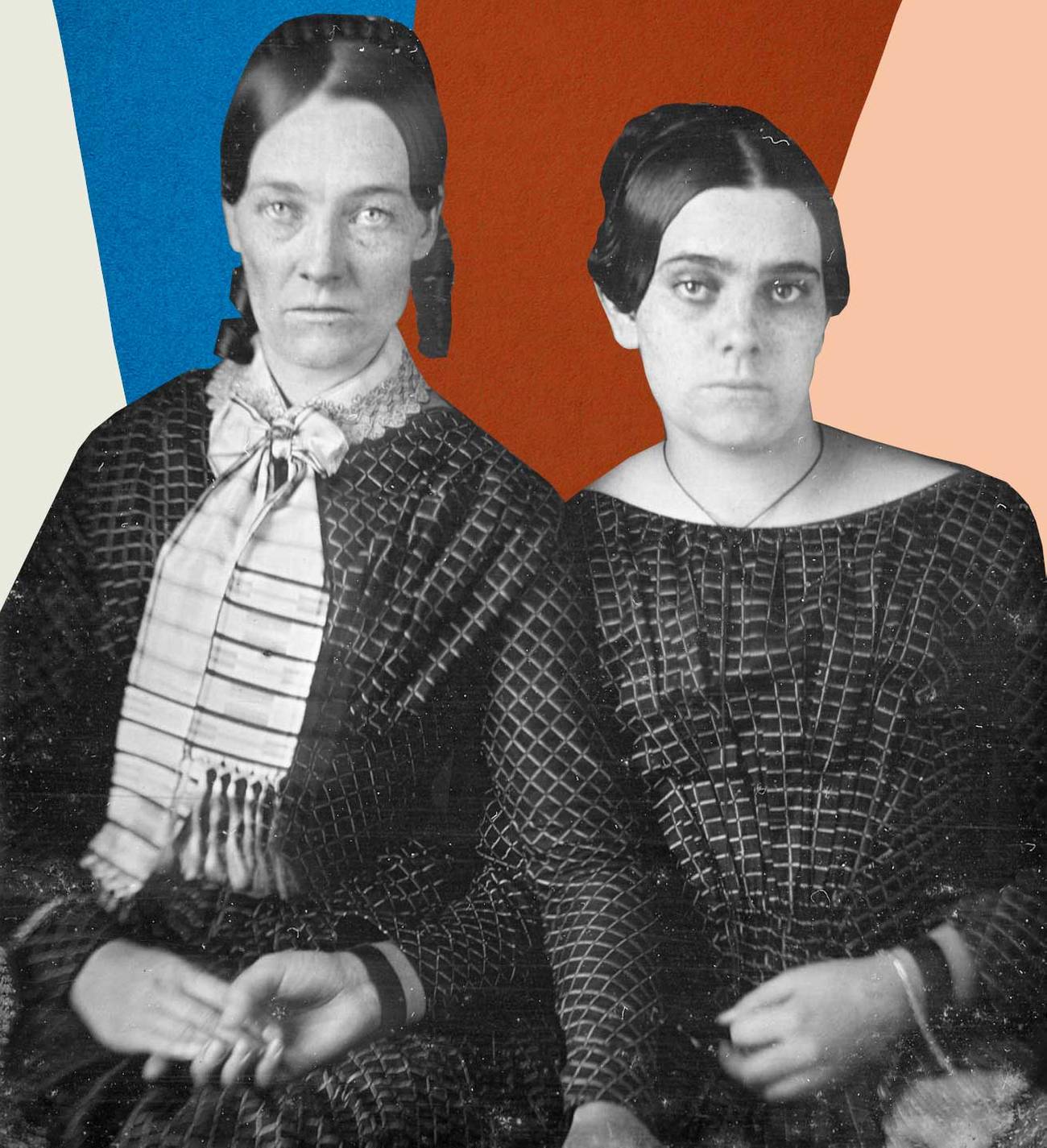Cancel Mother’s Day
Now is not the time for a ‘farshtunkiner’ made-up holiday!




I’ve been known to snark about Mother’s Day. Mainly because for Gen X and millennial mothers, it can be exhausting—one more juggling act in a life that’s full of them. Though the day is ostensibly about celebrating us, Mother’s Day really asks us to be attuned to our kids’ emotions and expectations more than to our own (mah nishtanah), plus it often means having to manage the needs of our moms (and maybe mothers-in-law) as well. It is a holiday that tends to underwhelm.
COVID-19 has changed everything. What I wouldn’t give to be a whiny little bitch about Mother’s Day this year! Pettiness now feels ... well, petty. Some of us have lost moms and grandmothers to this horrid illness. Many of us haven’t seen our moms in months, and we miss them terribly. Almost all of us are worried about our moms’ health. What a delightful divertissement a little choosing-a-restaurant drama would be! Kvetching about having to schlep to the Upper West Side for brunch seems more than churlish; it seems like a relic.
So I have a proposal: Can we suspend the holiday? Just collectively agree that everything sucks and nothing is normal and no one has to do anything to acknowledge a day that reminds us of when we used to have bite-size stress that we thought was family-size stress, and/or didn’t feel this bereft and forlorn? Next year, God willing, we can discuss being churlish again.
Beyond the obvious threat of death and massive economic collapse, there are plenty of reasons to cancel Mother’s Day. It certainly isn’t currently what its creator intended.
You probably know the holiday was born at the turn of the century, when a woman named Anna Jarvis wanted to pay tribute to her own mom. Jarvis was tenacious. She approached the head of Wanamaker’s Department Store to get funding for a celebration of the selflessness of mothers. A religious woman, Jarvis launched the holiday at a Methodist church in West Virginia in 1908; at the same time, Wanamaker’s launched the event at its retail palace in Philadelphia. In 1914, after Jarvis campaigned tirelessly, President Wilson made Mother’s Day a national holiday. Jarvis’ vision of celebrating it involved wearing a white carnation on your lapel, visiting your mom, and going to church. Low key.
Of the carnation, Jarvis said:
Its whiteness is to symbolize the truth, purity and broad charity of mother love; its fragrance, her memory, and her prayers. The carnation does not drop its petals, but hugs them to its heart as it dies, and so, too, mothers hug their children to their hearts, their mother love never dying. When I selected this flower, I was remembering my mother’s bed of white pinks.
Leaving aside the ickiness of associating whiteness with everything good, this is a lot of heavy symbolism for a little flower to carry. Am I wrong that Jarvis’ description of both the flower (“pinks” are carnation relatives: smaller, hardier, with shorter stems) and motherhood sound a little, well, florid? Obsessive? Regardless, For whatever it’s worth, Jarvis herself never married or had kids. Perhaps no reality could live up to her idealization of her own mother (or for that matter, of that dang carnation). When Jarvis was trying to launch Mother’s Day, she savvily collaborated with retail outlets and florists in mutually beneficial promotion; she was an influencer before we knew the word! But she quickly soured on the commercialization of something she wanted to be religious and pure. By 1920 she had become disgusted with how the holiday had been co-opted by capitalism. Others had made “a lucrative racket of my idea,” she said. And consumers were lazy jerks, too: “A printed card means nothing except that you are too lazy to write to the woman who has done more for you than anyone in the world. And candy! You take a box to Mother—and then eat most of it yourself. A pretty sentiment.” Dang.
Jarvis began flinging lawsuits around like flower petals, claiming ownership of the term “Mother’s Day.” (Among those she sued: Eleanor Roosevelt and New York state.) By the end of her life, in 1948, she’d all but bankrupted herself paying lawyers and lobbying the United States government to expunge Mother’s Day from the calendar. Clearly she was a delight.
But it’s instructive to look at the work of her mother, the purported reason for this holiday. Ann Reeves Jarvis was an honest-to-goodness public health activist. Like many women of her day, she gave birth to multiple children who died in infancy. (Only four of 11 reached adulthood.) In the mid-19th century, childhood illnesses like measles, smallpox, mumps, whooping cough, diphtheria, and tuberculosis ran rampant—today, of course, we have vaccines that prevent them—and contagion spread unchecked through Appalachia, where Ann Reeves Jarvis lived. While pregnant with her sixth child, she became active in the public health movement. She convinced doctors (including her brother James, who led local efforts to fight typhoid fever) to educate her in disease prevention. In 1858, she established Mothers’ Day Work Clubs in several towns, with women going door to door to teach other women about handwashing, general sanitation, proper methods of food prep, treating sickness, and improving infant mortality rates. The clubs raised money for medicine for poor families and for milk inspection long before there were federal standards. During the Civil War, when the area she lived in was split among those who were for the Union and those who were for secession, she demanded that the Mothers’ Day Work Clubs provide health care to all. At a time when more soldiers died of infection than of injuries or wounds themselves, Jarvis directed the clubs to treat typhoid fever and measles and nurse all the soldiers they came across. After the war, she established “Mothers’ Friendship Day,” in which mothers gathered with former soldiers on both sides to teach about sanitation, and not so incidentally, try to build bridges among former enemy combatants.
It’s ironic, to say the least, that the inspiration for Mother’s Day was someone that today’s descendants of the Cult of True Womanhood would be horrified by: someone who worked outside the home, fought for science and medicine, and reached across class lines.
Abolitionist and suffragist Julia Ward Howe, author of the “Battle Hymn of the Republic,” worked with and admired Ann Reeves Jarvis during the war. Afterward, Howe joined the U.S. Sanitary Commission, continuing the educational work Jarvis began. In 1870 she wrote a Mother’s Day Proclamation urging mothers to take time away from family and devote one day a year to working for peace and justice in their communities. For 30 years, “Mothers Peace Day” was a June holiday around the country.
Of course, Mother’s Day hasn’t hewed to Ann Reeves Jarvis’ and Julia Ward Howe’s values. And not just in its iteration of consumerism run amok. In Nazi Germany, Mother’s Day morphed into a demand for Aryan women to have more babies, boosting the population and ensuring the purity of the race. This version of Mother’s Day fetishized motherhood, idealized traditional values, and explicitly discouraged women from working outside the home or having rights. In 1941, in Vichy France, Marshal Philippe Pétain—a puppet of the German government—encouraged Mother’s Day to become a celebration of larger families. To this day, many French Jews loathe the holiday. A friend who married a French woman asked his wife what she wanted to do to celebrate Mother’s Day, and she replied, “That’s a Vichy holiday. Fuck that Nazi bullshit.” Such a sentiment certainly makes gifting easier.
But for most Jews in the U.S. nowadays, Mother’s Day is the holiday of the wildly expensive bathroom candle and the pointless cozy bathrobe, the holiday of the overpriced mimosa and eggs Florentine. Not this year, though. This year we stay home. Many of us are now in an economically precarious place. Many of us are missing our moms and long like crazy to hug them. (Can I just take a second to say to those folks whose moms died many years ago or who have a lousy relationship with their moms: I see you. I’m sorry.)
Given what’s going on in the world now, maybe it’s time for a moratorium on gifting and on big expectations. Maybe it’s time to tune out the messages pumped up by marketers, infused with sickly sentimentality as cloying as cheap chocolate, aerated with “this is how it’s supposed to be” gas. Perhaps we’ll feel better in this frightening, demoralizing time if instead we emulate Ann Jarvis—the woman who believed in handwashing and public health, who would have been overjoyed by the advent of vaccines—and Julia Ward Howe, the woman who believed in equal rights for women and people of color and the importance of clean water and working for peace.
Marjorie Ingall is a former columnist for Tablet, the author of Mamaleh Knows Best, and a frequent contributor to the New York Times Book Review.